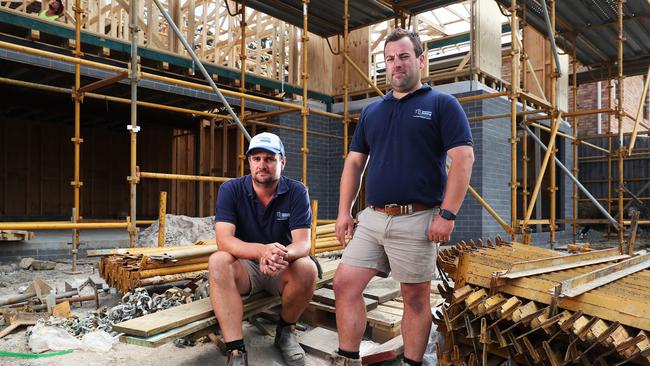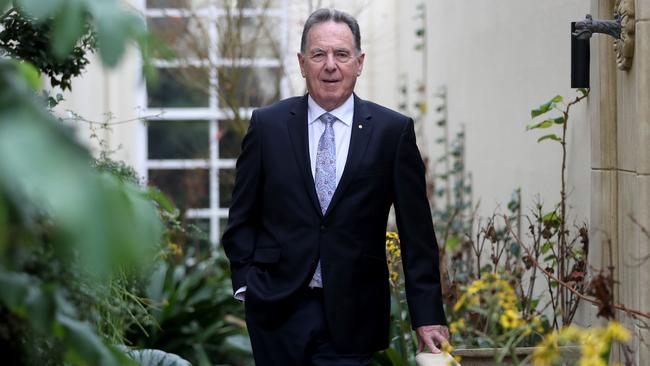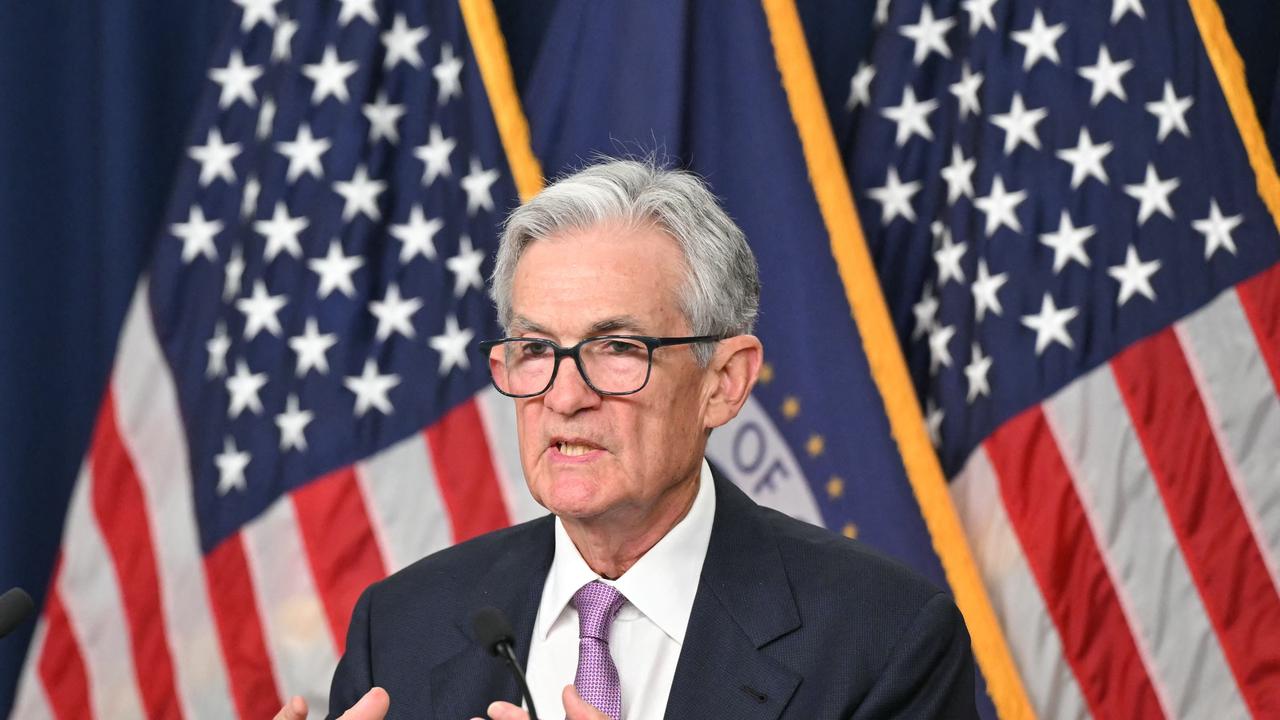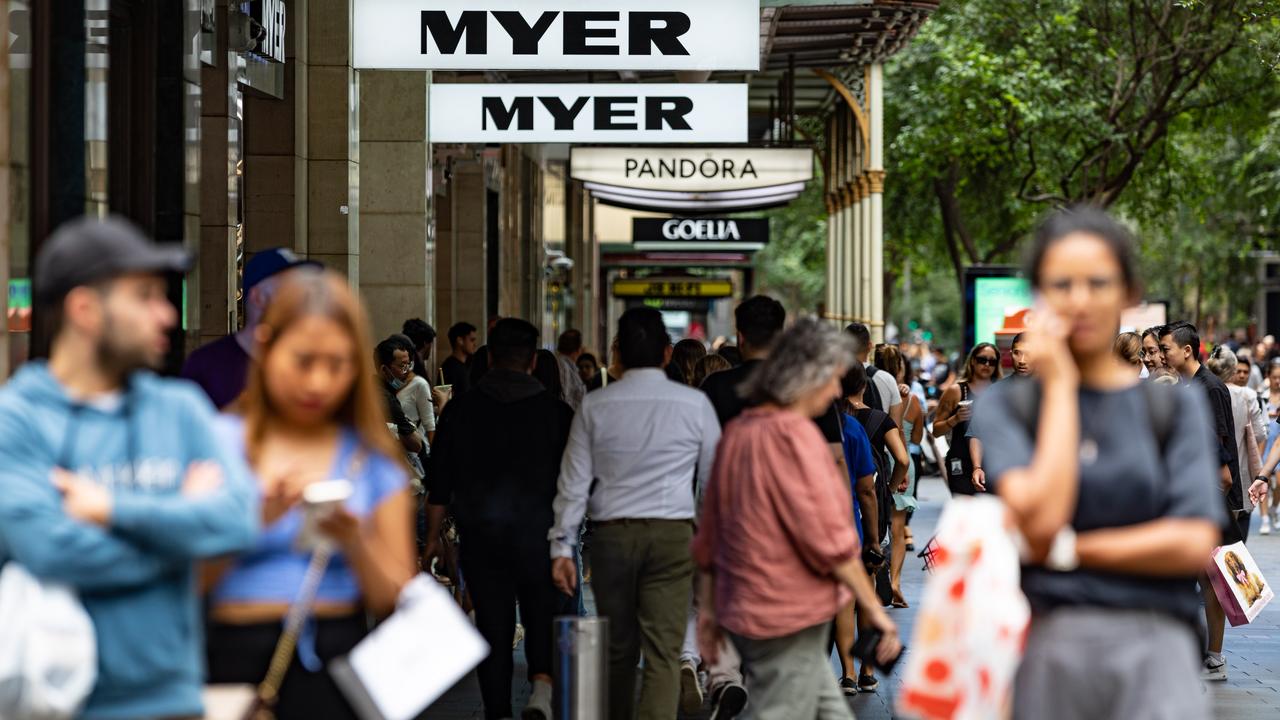
As the headlines point to more pockets of post-COVID skyrocketing prices, the market is tipping Wednesday’s CPI figures will be benign, with core prices up 0.5 per cent for the quarter or 1.3 per cent for the year. Tradesmen report growing shortages and higher prices for some bathroom products and structural timber, with PVC resin prices at $US1250 a tonne — double a year-ago levels.
Steelmaker BlueScope revealed the blue sky from such moves, with its stock price up to post-GFC highs of $22.16 a share after tipping record profits of over $1bn in the second half of this year.
Westpac is expected to follow the lead of rival CBA as soon as Wednesday in lifting longer-term fixed-rate mortgage loan rates over four and five years, on the back of the global market moves.
The RBA is keeping a lid on the price of shorter-term notes of three years and under, and today’s inflation news — if it comes in as expected — won’t worry RBA chief Philip Lowe.
At the long end of the curve, the market is worried about global inflation flowing from the extent of US economic stimulus.
A combination of supply shortages due to COVID-affected manufacturing, shipping prices and rapidly increased demand in the US and elsewhere is to blame for product price increases.
From a statistical perspective, the good news is the ABS excludes the top and bottom price moves in working out core prices which are used by the RBA to set interest rates.
It has a line in the sand of inflation at 2.5 per cent.
If Wednesday’s number comes in as expected at 1.3 per cent this leaves plenty of breathing room, which other things being equal means no changes to interest rate policies.
But this is of little comfort for people trying to source PVC pipes or structural timber, where prices have risen sharply and in some cases supply is short.
Demand has skyrocketed in the home renovation boom last year and in response to new home incentives put in place by the federal government to boost the economy.
The bulk of Australia’s timber is sourced locally but some production was hit during COVID and imports from Europe are hit by US demand.
Super victory
Industry funds scored a victory of sorts with the latest regulations, which will include admin fees in the performance calculations. On balance this tends to hit the retail funds hardest but provides a better member test.
But the regulations disappointed some by shedding no new light on just how the government plans to use its controversial new powers to intervene when a fund makes inappropriate investments.
The concern here was the government would intervene for political reasons and at the very least the industry was hoping the regulations would spell out when the reserve powers may be used.
The government says there are no plans to make such intrusions, but if so why create the power in the first place?
Superannuation Minister Jane Hume has said such powers will be used rarely and subject to regulations put to parliament.
Conspiracy theorists like former retail industry adviser, Senator Andrew Bragg, say the powers may be used to intervene against such investments as ISA’s New Daily news site.
But the publication is held separately to any fund under the Industry Super Holdings account, which includes IFM, back-office services, financial planners, and the like under the IFS Banner and ISA.
At the end of the day, most punters want to know their returns net of fees.
The inclusion of this in the regulations due out today will mean 25 of the circa 81 funds included will fail to meet the hurdle tests, accounting for some four million accounts with $129bn under management.
This compares with the previous test which didn’t include admin fees and meant 21 funds with three million accounts and $100bn under management failed to meet the performance tests.
The reform also includes provisions that mean members who don’t change their choice will be with the same funds for life.
Some funds have opposed the move on the grounds people could be stuck with dud funds for life, but members always have the right to opt out, so financial education is the key. The government claims the reforms will save $17.9bn over 10 years, noting Australians pay $30bn in superannuation fees a year, which is more than they pay for gas and electricity combined.
AGL fit to split
New AGL chief Graeme Hunt will present for the company at next Tuesday’s Macquarie conference in Sydney and will confirm the structural separation will proceed as planned.
This puts to rest rumours to the contrary after Brett Redman’s abrupt departure last week.
The company is yet to provide detail on the split, which will include independent chairs and new executives in charge of the two entities, complete with new chairs.
Hunt is likely to stay, with other board members as non-executives on the two new arms.
AGL’s stock price is continuing to fall from a high this year of $12.14 a share to $8.67.
Samuel takes stock

Forty years ago Graeme Samuel hit the spotlight with Chris Corrigan when the two investment bankers led the charge against fixed stockbroking commissions, which ended the cosy brokers club.
On Tuesday National Stock Exchange chair Tim Hart appointed Samuel to his board at a time when the ASX is vulnerable, with a new powerful owner of rival ChiX and a regulatory crackdown flowing from its repeated technology snafus.
Hart said Samuel, the former ACCC chair, would help with governance, its new payment service Clearpay and in working with regulators.
ASIC is widely expected to soon make known its views on ASX licence conformance in the wake of repeated technology problems, centering on the November 19 market closure last year.
ASIC has two inquiries: one which requires the ASX to report back after an external review, and another enforcement inquiry.
This comes as rival ChiX is about to be taken over by the US giant the Chicago Options Board, which plans an assault on the ASX’s market power.
The NSX competes with the ASX for new listings but doesn’t compete on trading of ASX stocks as ChiX does.
ChiX has up to 15 per cent of ASX trade but when the ASX goes down, ASX rules designed to preserve trading positions make it difficult for rivals to step in to handle the trades, which are effectively frozen.
The ASX has worked hard in recent months to restore its battered reputation with the powers-that-be in Canberra.
The stockmarket operator’s image plummeted in the wake of its technology problems.
A long-trumpeted change in CHESS clearing system has now been put on ice for two years.
Back in the early 1980s Samuel, then at Hill Samuel, and Corrigan, then at BT, led the Merchant Bankers Association attack on the stockbroker closed shop which set prices in the industry.
They forced the Trade Practices Commission (now ACCC) to investigate the industry which resulted in the deregulation and eventual collapse of stock broker commissions.
More Coverage
Read related topics:Coronavirus





